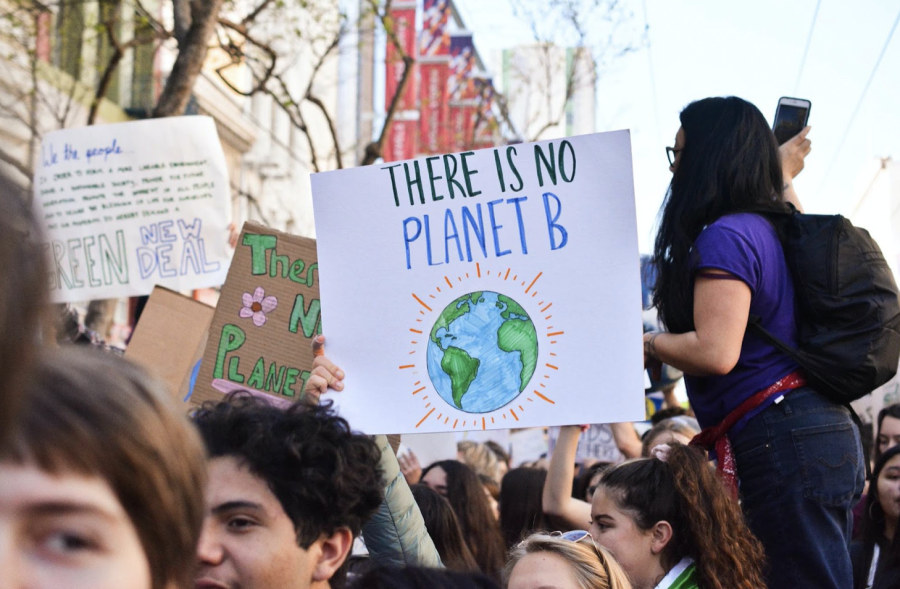Climate Change: Six Degrees of Wishful Thinking
Many hope for heightened global concern towards climate change.
January 29, 2022
Climate change, gun control and social inequality are macro scale topics we hear a lot about. However, it seems our concern for them is as fleeting as our liking for the newest hit song. It tops the charts, we listen to it on repeat for a few weeks, then it fades into the depths of our playlist as we latch onto the succeeding song. Climate change is no different.
Our concern for the forest fires in Australia or California is often less than or equal to the time it appears in the news cycle. Further, are the slew of Instagram story reposts out of genuine concern or merely an attempt to appear cultured and aware? These problems are troubling to scientists and economists alike, making possible solutions the subject of intense debate. I will argue that individuals will continue to neglect the issue until it directly interferes with their own well-being. My argument will be based on the science of human behavior through evolution and will conclude with a critique of currently posed solutions.
In “The Theory of Moral Sentiments,” Adam Smith, speaking on man’s reaction to all of China being swallowed by an earthquake, says, “If he was to lose his little finger to-morrow, he would not sleep to-night; but, provided he never saw them, he will snore with the most profound security over the ruin of a hundred millions of his brethren, and the destruction of that immense multitude seems plainly an object less interesting to him, than this paltry misfortune of his own.”
In other words, we care more about an injury to our finger than for the death of a hundred million people we’ve never met or seen. Let’s trace this line of logic to what I am loosely calling the “encroaching dilemma.” Imagine a prominent issue such as a forest fire spreading. You are first notified that a neighboring country is being plagued by such fires. Next, you hear that a state within your country is feeling the effects of the fires. Then, it comes to your attention that a neighboring city has been nearly destroyed as a result. And so the dilemma is born. At exactly which point do individuals sense enough danger to begin taking preventative actions? I am not sure a perfect answer exists, but my intuition is that the answer lies uncomfortably closer to Smith’s than the wishful thinking popularized by the media.
How could humans be so selfish as to only concern themselves with climate change when it begins to directly interfere with their own lives? I believe evolution has something to contribute here. At no point in history has our species preoccupied itself with issues outside of our immediate environment. We are, in no way, encoded to care about, “that over there” when there exists a myriad of problems “right here.” It is not until the “there” becomes the “here” that the organism begins to adapt its behavior.
It is unpleasant to accept the reality that humans, generally, are selfish animals in pursuit of resources and reproduction. Further, it is discouraging to think that this pursuit persists even when faced with a threat to the future of humanity. With time, I am hopeful that our evolutionary nearsightedness can morph into the type of forward-thinking required for progress.
However, individuals are going to have to experience some disruption to catalyze change. This disruption will assuredly not come in the form of a celebrity or predictive documentary. I am optimistic that improvements can be made through production of recyclable products and safer emissions. In the case of industry, government regulations may be the only antidote to corporate greed.
Widespread progress will not occur until humanity develops a sense of immediacy around the threat of climate change. It remains up for question whether this sense can be artificially induced by means of activism or media.


